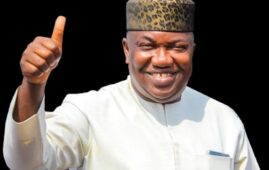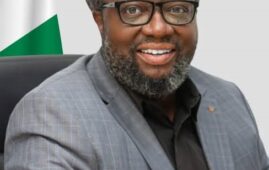Recently, residents in dozens of cities in the U.S. have staged assemblies and demonstrations to protest against racial discrimination and hate crimes against Asian Americans.
While more and more people in the world have seen the “true colors” of the U.S. as regards its worsening domestic human rights crisis, the U.S. Department of State released its latest Country Reports on Human Rights Practices on March 30, nitpicking the human rights conditions in nearly 200 countries and regions, and stigmatizing China by brazenly making irresponsible remarks and knitting lies about the country’s handling of the COVID-19 pandemic and Xinjiang-related affairs.
Such double standard on human rights is preposterous!
During the launching ceremony of the report, some U.S. officials claimed that everyone deserves human rights, and yet they have turned a blind eye to the historical, long-term, and deep-rooted human rights problems at home, and have no intention to truly resolve such problems.
More than 500,000 American people have lost their lives due to the COVID-19 pandemic; racism prevails in the U.S. in a comprehensive, systemic, and continuous manner; racially discriminatory remarks are spread across the country without restraint; the U.S. police enforce the law violently against people of color; people like George Floyd, an unarmed African American who was suffocated to death by a white police officer, cannot breathe freely in the U.S.; Asian Americans are discriminated against, attacked and even killed; and more than 40,000 people died from shootings a year in America.
Apparently, to some U.S. politicians, human rights are merely their excuse to attack and smear other countries.
It should be noted that racial and cultural prejudices in the U.S. didn’t happen overnight. As certain American politicians can’t quit political manipulation on the origin of the novel coronavirus, Asian Americans are suffering even severer racial discrimination.
From March 19, 2020, to Feb. 28 this year, a total of 3,795 various types of incidents of racial discrimination against Asian Americans were reported, according to Stop AAPI Hate, a California-based nonprofit social organization that tracks incidents of discrimination, hate, and xenophobia against Asian Americans and Pacific Islanders in the U.S..
The recent mass shootings in the Atlanta area of the U.S. caused the deaths of eight people, including six Asian women. Many Asian Americans have trouble sleeping at night lately, saying that they feel like they can be attacked willfully at any time.
In fact, the systematic racial discrimination in the U.S. is manifested in all aspects of social life.
Data showed that colored juveniles account for about one-third of the residents under the age of 18 in the U.S., and yet two-thirds of the total number of minors incarcerated.
The COVID-19 infection rate of African Americans is three times that of white people in the U.S., and the number of black people who died of the virus is twice that of white people in the country.
Meanwhile, black Americans are about three times more likely than whites to be killed by the police.
Of the 8,302 single-bias hate crime cases reported by law enforcement agencies in 2019, 57.6 percent involved race, ethnicity and ancestry, said a report released by the Federal Bureau of Investigation (FBI) of the U.S. last year.
The facts above have fully proven that “Color has obviously played a major role in determining the fate of many Americans”, as Thomas Sowell pointed out in his book Ethnic America: A History.
When the United Nations Human Rights Council (UNHRC) reviewed the latest Country Reports on Human Rights Practices of the U.S., over 110 countries in the world criticized the U.S. for failing to protect human rights, and dozens of special rapporteurs with the UNHRC frowned upon the existing discrimination against minorities and other issues in the U.S.
The U.S. has exposed the hypocritical nature of American democracy as it recklessly slandered other countries on human rights while trying to play down its own problems on the subject.
The U.S. politics has been trapped in divisions, which makes it hard for the government to launch effective measures to heal the wounds caused by racial discrimination and restore racial justice. Some U.S. officials have even openly supported far-right ideas, and added fuel to the flames of white supremacy belief.
The international community has become increasingly aware that the intensifying racial crisis in the U.S. in recent years has everything to do with the inaction of the government.
The anti-Asian racism and violence “are not random acts perpetrated by deranged individuals, but an expression of the country’s “long history of systemic racism targeting Asian Americans and Pacific Islanders”, said Dr. Erika Lee, a history and Asian American studies professor with the University of Minnesota in the U.S.
Human right is neither a slogan nor a tool for exerting pressure on other countries. Instead, it should be reflected in tangible actions.
However, it seems that the U.S., the so-called “beacon of human rights”, is not able to bring light to its own people who are in desperate need of human rights protection.
(Zhong Sheng is a pen name often used by People’s Daily to express its views on foreign policy.)










Leave a Comment